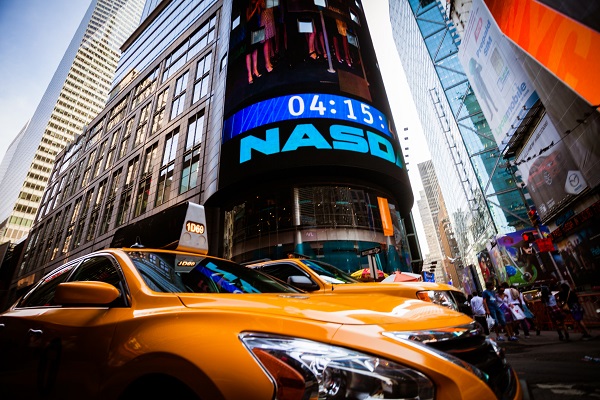Market snapshot: nerves creep in as key data looms
13th September 2023 08:33
by Richard Hunter from interactive investor

Investors remained on edge in anticipation of the latest US inflation reading, while weakness in the technology sector added to the general unease.
Complicating the inflationary and therefore interest rate issue was a further hike in oil prices, which have now risen by over 7% in the year so far. The latest development saw OPEC maintaining a strong demand forecast in the immediate future, while traders tried to estimate whether the floods in Libya would have any meaningful effects on disrupting supply.
- Learn more: SIPP Portfolio Ideas | How SIPPs Work | Transfer a SIPP
The more recent strength in energy prices is likely to have had an effect on the key inflation data expected this week, with the Consumer Price Index reading today and the Producer Price Index tomorrow. There seems little doubt that the general downward trajectory of inflation is slowly being achieved, but the oil price rises could cloud the issue and, at worst, steer the Federal Reserve towards considering that its interest rate hiking cycle has further to go.
Consensus still remains entrenched that there will not be a rise following next week’s meeting, but the outlook for November is finely balanced. In the meantime, core CPI is expected to fall to 4.3% from 4.7% year on year, with headline inflation (which includes energy) remaining at 3.6%. Any large deviations from these expectations will move markets and would certainly rekindle fears of higher rates for longer, which would in turn be negative for equities in the shorter term.
Meanwhile, Oracle Corp (NYSE:ORCL) shares plunged by more than 13% after reporting sales which fell shy of estimates, while revenue numbers also disappointed. The news had a knock-on effect to other cloud competitors as investors contemplated whether Oracle’s outlook was the thin end of the wedge in a slowdown in business spending.
The fall in the Nasdaq took some of the shine from its strength this year, although the index remains ahead by 32%. The rise in energy stocks helped mitigate losses in the S&P500 and Dow Jones, which remain up by 16% and 4.5% respectively in the year to date.
In the UK, there was some very brief weakness in BP (LSE:BP.) shares at the open on Wednesday, despite another hike in the oil price following overnight news of the departure of the CEO. Compared to the multi-billion dollar fines following the Deepwater Horizon spill, briefly negative oil futures prices and dividend cuts during the pandemic, the resignation is a surprise but perhaps not a major chapter in BP history.
In addition, and with a temporary replacement now confirmed, BP will be hoping for markets to regard the situation as business as usual. There will, however, inevitably be uncertainty until such time as a permanent replacement is found and the company clarifies whether there will be any changes to its current strategy.
- Stockwatch: investors bag big profits after company lands the big one
- How not to get left in the dust in the EV boom
- Six steps to manage your own wealth
The fragility of the UK economy was underlined by a contraction of growth of 0.5% for July, against expectations of a drop of 0.2% and following a rise of 0.5% in June. Strike action by teachers and healthcare workers had some effect, while the unseasonal weather may also have dampened demand in the consumer sector as well as hampering construction. The next step will be for investors to consider whether growth is now stalling to the extent that the Bank of England can consider calling time on its interest rate hiking cycle sooner rather than later, and indeed whether the measure could be the precursor of recession.
The FTSE250 bore the brunt of the new uncertainty, dipping at the open to leave the index down by 2% this year. The FTSE 100 also nudged lower, with an eye on US market weakness and ahead of the inflation print to come later.
Aviva (LSE:AV.) shares rose on the announcement of a near $1 billion sale of its Singapore Life stake, while there was also some tentative buying interest in the banks like Lloyds Banking Group (LSE:LLOY) and Barclays (LSE:BARC). The index is now ahead by just 0.8% in the year to date, seemingly unable to maintain any meaningful or material progress.
These articles are provided for information purposes only. Occasionally, an opinion about whether to buy or sell a specific investment may be provided by third parties. The content is not intended to be a personal recommendation to buy or sell any financial instrument or product, or to adopt any investment strategy as it is not provided based on an assessment of your investing knowledge and experience, your financial situation or your investment objectives. The value of your investments, and the income derived from them, may go down as well as up. You may not get back all the money that you invest. The investments referred to in this article may not be suitable for all investors, and if in doubt, an investor should seek advice from a qualified investment adviser.
Full performance can be found on the company or index summary page on the interactive investor website. Simply click on the company's or index name highlighted in the article.